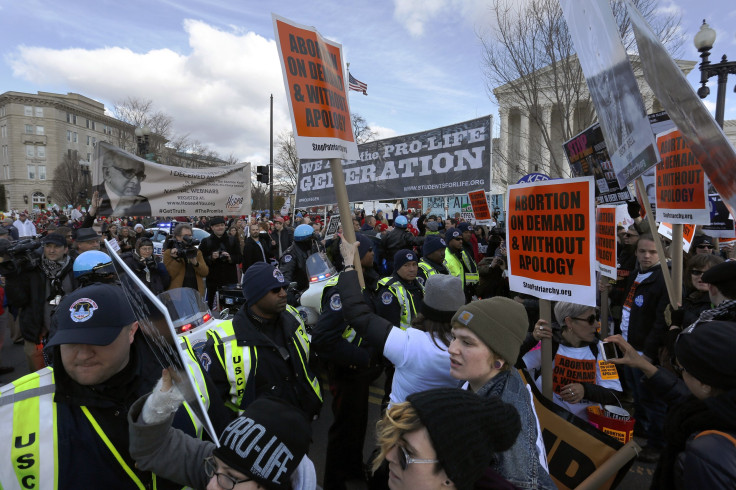Idaho Abortion Law: Federal Court Strikes Down 20-Week Abortion Ban

Supporters of an Idaho law prohibiting abortions of fetuses 20 weeks or more after fertilization lost a major legal battle Friday when a federal court ruled the state ban unconstitutional.
The 9th U.S. Circuit Court of Appeals, based in San Francisco, issued a unanimous ruling Friday declaring Idaho’s restrictive abortion law “unconstitutional because it categorically bans some abortions before viability” and “places an arbitrary time limit on when women can obtain abortions.” According to the court, Idaho’s law violated a 1992 Supreme Court ruling that said states could not ban abortions before the point of viability, which the court considered to be around 24 weeks after fertilization.
The appellate court also threw out Friday another Idaho law that required women undergoing second-trimester abortions to have their procedures done in a hospital. The requirement “places an undue burden on a woman’s ability to obtain an abortion,” the judges said.
Idaho legislators passed the 20-week ban, known as the “Pain-Capable Unborn Child Protection Act,” in 2011. The law made no exceptions for cases of rape, incest or fetal abnormalities. The plaintiff, Jennie McCormack, brought the case forward as a class-action lawsuit after facing criminal charges in 2011 for self-inducing an abortion through the "morning-after" or abortion pill, RU-486.
Twelve other states currently have similar abortion bans in effect, with West Virginia becoming the latest to enact such a law just this Tuesday. On Wednesday, another federal appeals court struck down Arkansas' version of the law, which banned abortions after 12 weeks of pregnancy. Arkansas still has a 20-week ban that remains in effect. Other states, including South Carolina and Wisconsin, are currently considering similar laws. Wisconsin Gov. Scott Walker, considered a potential Republican presidential candidate, plans to sign it if it reaches his desk, his office told the Daily Beast.
The U.S. House of Representatives also passed a federal 20-week abortion ban last week, moving the legislation onto the Senate. President Barack Obama, however, is considered certain to veto the bill if it ever reaches him.
Planned Parenthood, which won the 1992 case that resulted in the Supreme Court precedent for the Idaho case, tweeted shortly after the ruling came out, calling it a victory.
VICTORY! Idaho struck down its 20-week abortion ban. Here's to politicians staying out of women's medical decisions! http://t.co/QMx2NTHrhs
- PP Votes Northwest (@PPVotesNW) May 29, 2015"This ruling is a warning to other states around the country passing bans on abortion that are unconstitutional and dangerous for women," Cecile Richards, president of the Planned Parenthood Action Fund, said in a statement.
A Gallup poll conducted in early May showed that 50 percent of U.S. adults identified themselves as pro-choice, compared to 44 percent as pro-life, the first time since 2008 that more Americans identified as pro-choice.
© Copyright IBTimes 2024. All rights reserved.












